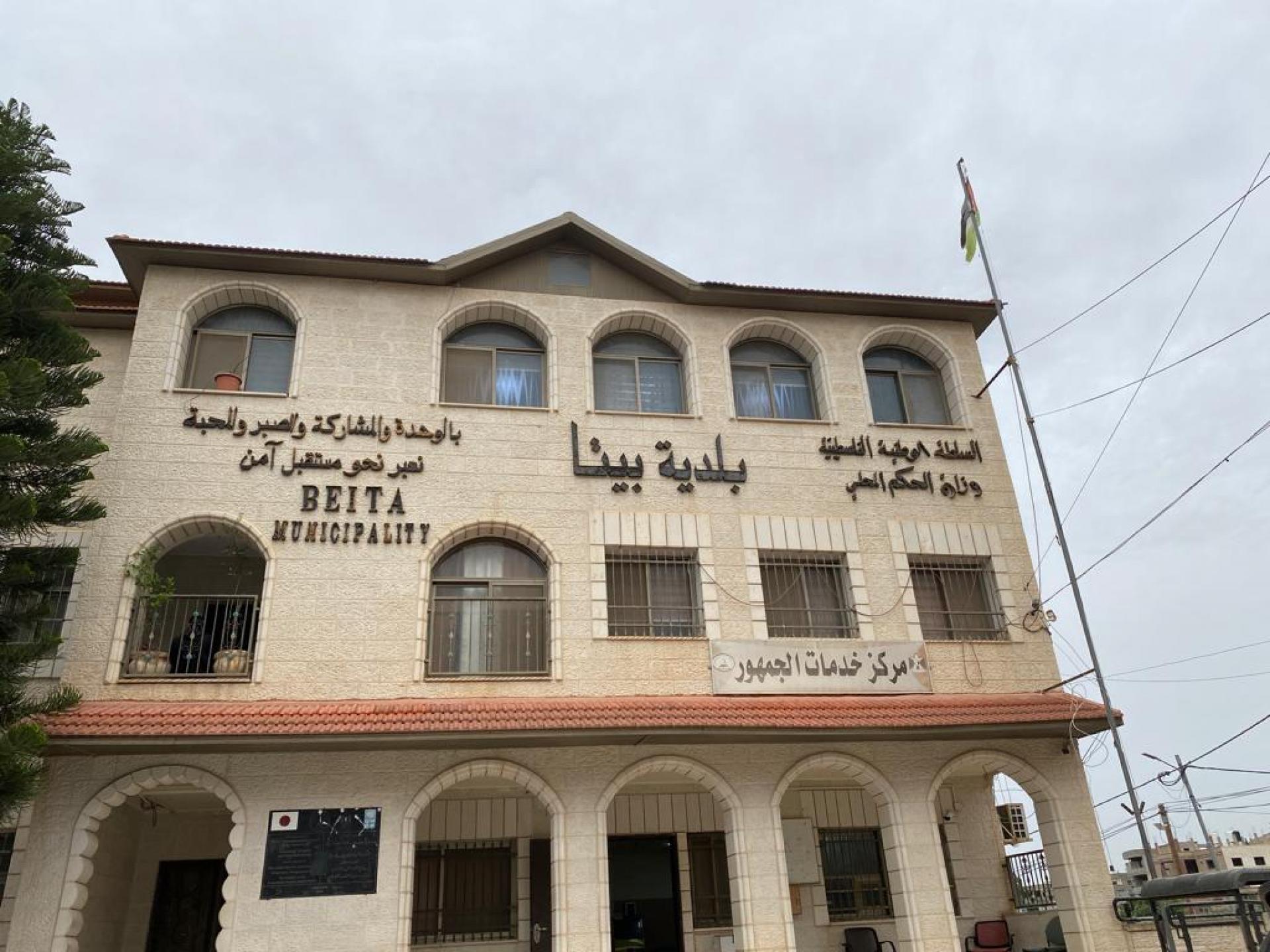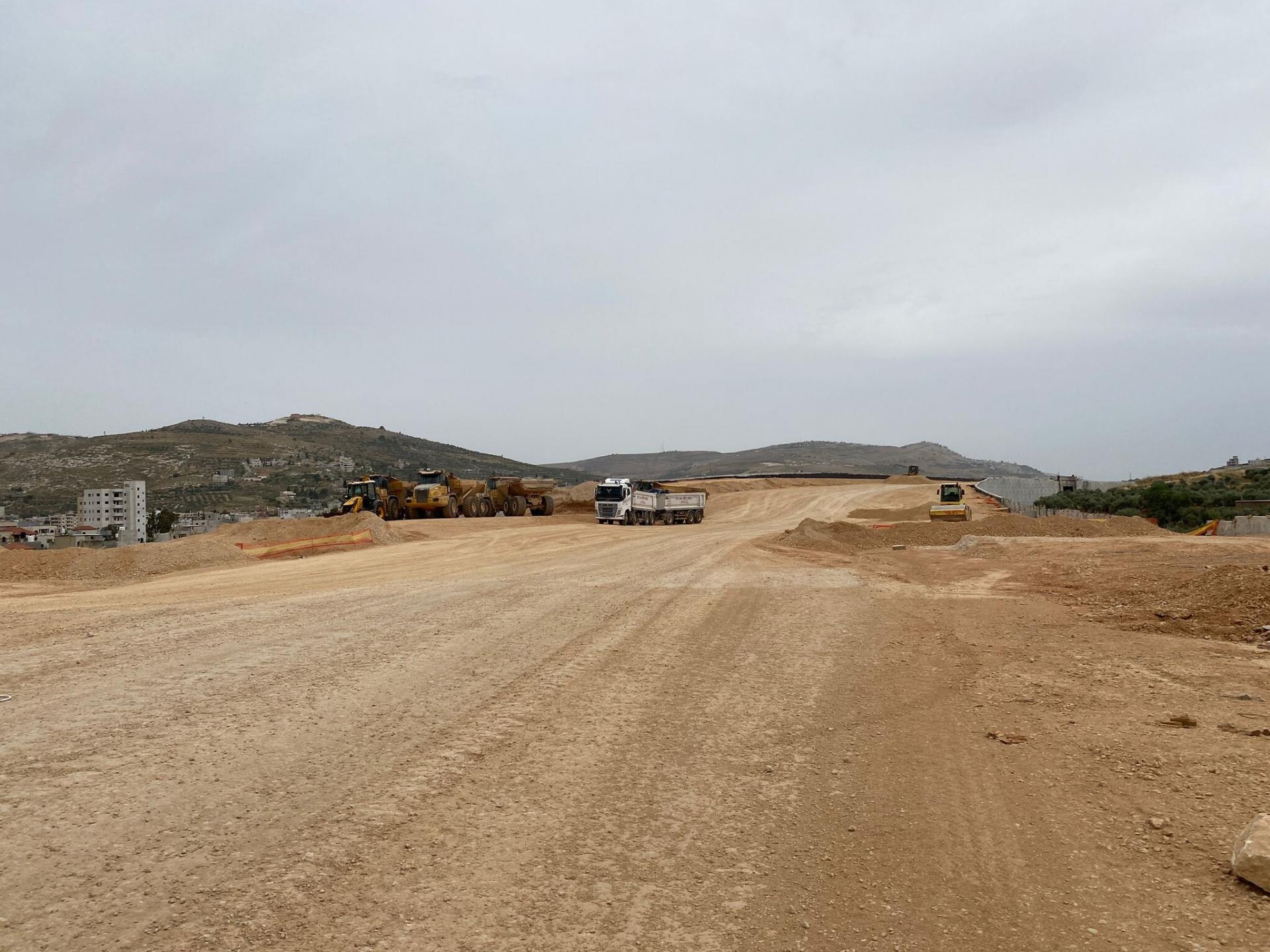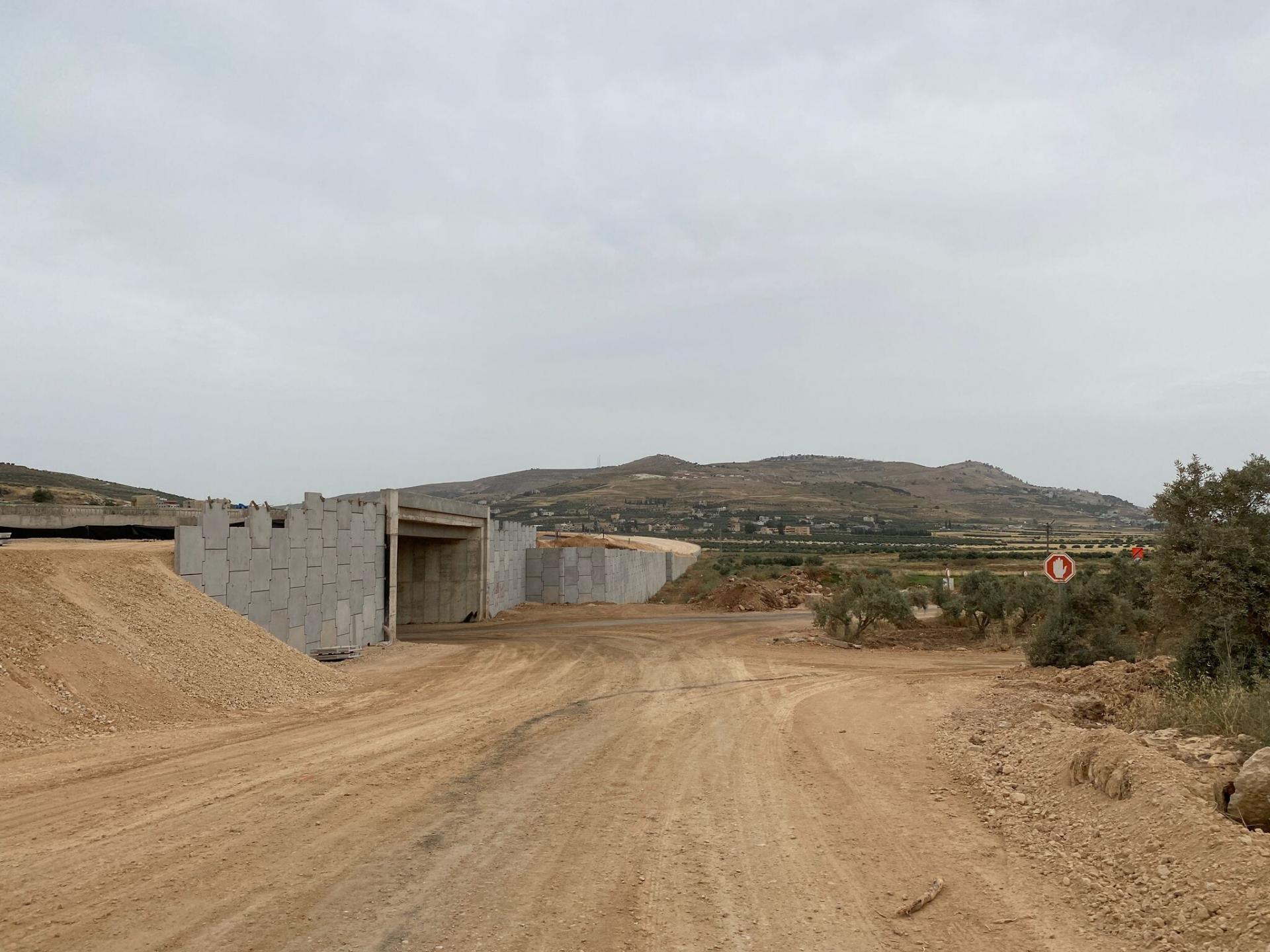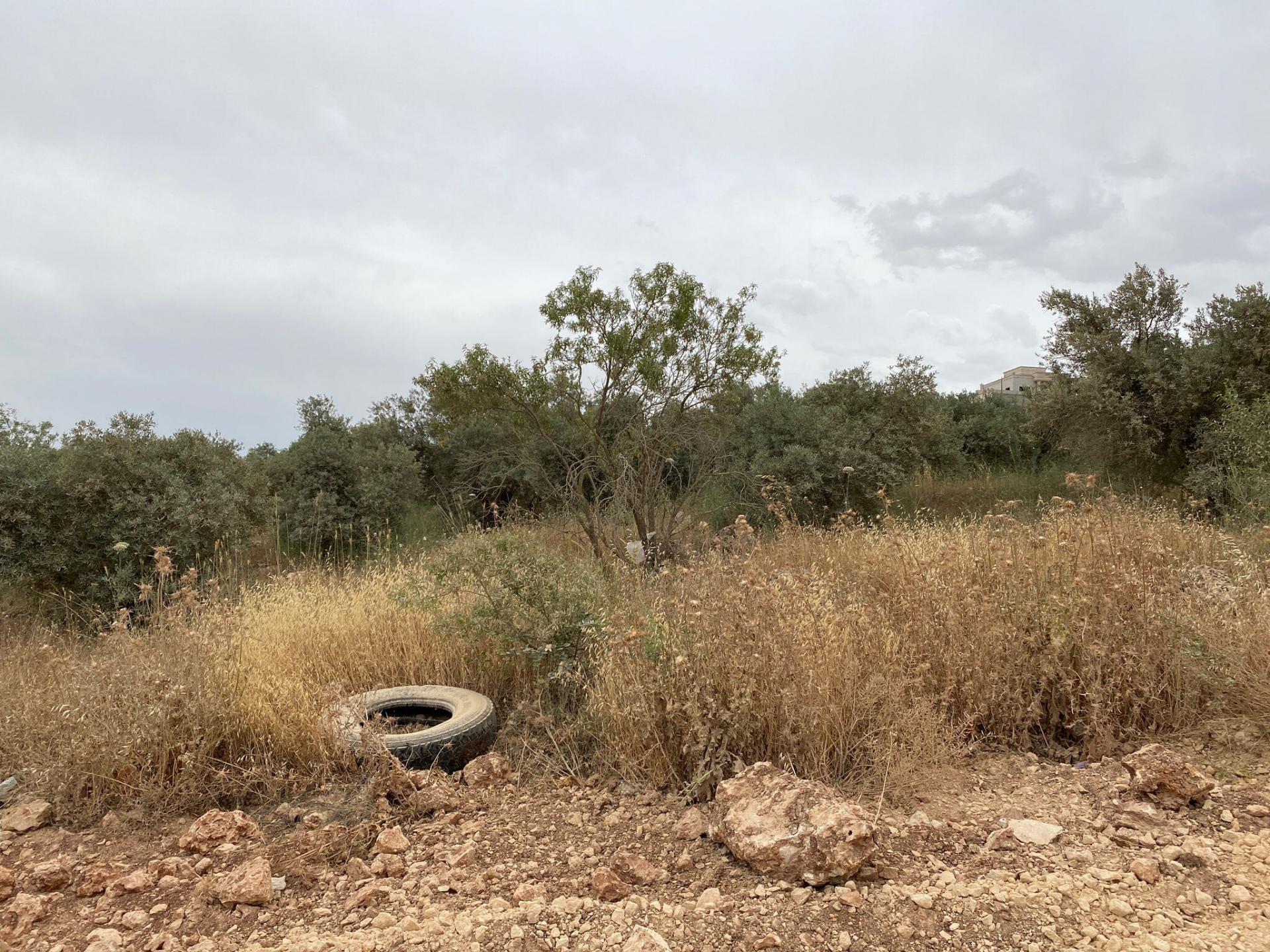Huwara, the settlers succeeded turning a vibrant main street into a dying route

Beita and Huwwara are in constant peril
We drove to Beita and Huwwara to see with our own eyes and hear with our own ears what the situation is in the two towns and their surroundings after the attacks on February 26, when hundreds of extreme right-wing activists rioted for many hours in Huwwara after Hillel and Yigal Yaniv, from the Har Bracha settlement, were killed as they drove along Highway 60 which runs through the middle of town. Homes and vehicles were set on fire; dozens of people were injured, and many more were affected by inhaling the smoke from the fires. Settlers rioted also in Burin and Zaatra; Samih al-Aqtash, from Zaatra, was killed.
After the riot a roadblock was established at the entry to Beita, staffed by three or four armed soldiers. When we arrived, at about 10 AM, the road was open. Mustafa A., who drove, translated so we could talk with some of the municipal employees. They said that before February there were five or six routes to enter and leave the village, but the army has since blocked them and residents are forced to go through the checkpoint at the sole remaining access road, which causes long delays and traffic jams. The eastern road to Aqraba is open and serves as an alternate route for those heading to Tapuach junction, and though it adds 10 km to the journey many prefer it to avoid the unavoidable wait at the checkpoint. Most of those choosing that route are ambulances and vehicles carrying ill persons, who are delayed for ten minutes or more, supposedly to check documents, even in emergencies, in particular when the passengers are young people. The disruption of daily life in the area’s towns and villages is a reality under the tight control of the army and settlers, but in recent months the control has grown even stricter.
One person with whom we spoke said the army enters people’s homes a few times a week to carry out searches and arrests. Only last night, he continued, soldiers confiscated a car belonging to a young Palestinian who entered Beita and arrested him. Why? He doesn’t know. It happens all the time. Soldiers stop a car, confiscate mobile phones and look through the photos and posts their owners put on social networks.
Leaving Beita for Huwwara we drove along the “Huwwara bypass road,” being developed as an apartheid route that will lead from Tapuach junction to the settlements of Itamar and Yizhar. 90% of the road, we will soon be informed by the Deputy Head of the Municipality, will be on Huwwara’s land, and we can see how the route of the wide road cuts through the town’s olive groves which, when completed, will no longer be accessible to their owners. The virtual reality presentation prepared by the Shomron Regional Council shows the road, two lanes in each direction, passing peacefully among rounded hills covered with flourishing olive trees, along overpasses, past highway exits, on different levels and using other engineering solutions to separate it from the older roads beneath it. You can see portions of the separation wall being erected between the town and the Palestinian villages, and the adjacent road that they will be forbidden to use. The only exits along the 5.5 km of this stretch of the road are to the settlements of Itamar and Yizhar.
The drive along Huwwara’s main street is difficult and depressing. Many shops are closed, few people about, and there’s a checkpoint at the exit to Highway 60 that runs through Huwwara and connects Nablus and Ramallah (and Tapuach with Yizhar, until the new road opens). Since the attacks all the streets connecting the different neighborhoods have been blocked to vehicle traffic. The two remaining exits that are open can be reached only by circuitous routes that avoid the roadblocks.
We showed up at the Municipality without having made an appointment in advance, and were welcomed with a smile by the Deputy Head of the Municipality; the Head was not in his office the day we visited. She, like everyone we spoke to, asked to remain anonymous. She told us that, because of its location between Ramallah, to the south, and Nablus, to the north, Huwwara has suffered for years from harassment by settlers on the surrounding hills, who descend on the town and its olive groves to damage and destroy, with the army’s protection. What the settlers want, she says, is to destroy Huwwara’s economy, and they’ve in fact succeeded in turning a vibrant main street into a dying route. After the attack many stores that had been rented to merchants from other towns were abandoned and they’re now closed.
It's not yet clear how many children suffer from fears and nightmares because of the attack. She tells us about a woman whose house was set on fire; she doused herself with water in order to get her two sons, aged 10 and 11, from the building. Since then, both have stuttered. Another problem parents have is having to escort their children to school, for fear of the settlers. She pointed to a hill visible from her window and to the huge tire at the top; once that was a playground for area children until it too was set on fire and destroyed by settlers. But the children are recovering, she assures us, “find their courage” from time to time, and even provoke the soldiers who chase them.
We asked an older man who had been present in the room with his grandson throughout our conversation but said nothing, whether he had suffered any damage in the attack. He said he’s a chef and the owner of a catering business who in February had been preparing for the month of Ramadan during March-April. The attack caused him to lose 80% of the meals he had prepared but was unable to deliver to his customers. He estimates he lost NIS 40,000 instead of making a profit of NIS 60,000. Today he’s unemployed. He said that some 500 businesses lost a total of at least NIS 3 millon because of the attack. Some of them received “compensation” from money donated to help them, but for many it’s difficult to recover. What makes things harder is the unacceptable practice of shutting down the entire municipality whenever there’s an incident. There’s no place in Huwwara that the army and the settlers don’t invade.
But “no power on earth will move us from here,” says the Deputy Head of the Municipality as she accompanied us to the door.




